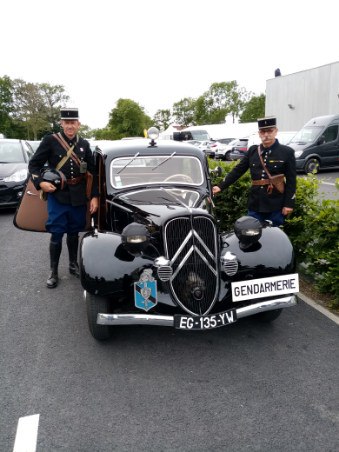p51
One Too Many
- Messages
- 1,119
- Location
- Well behind the front lines!
I saw this excellent photo on the D-Day 75th thread posted here: https://www.thefedoralounge.com/thr...tion-overlord-d-day.96302/page-2#post-2556623

Great impressions!
But it got me wondering, as the French police during the occupation surely had to sometimes enforce what the Germans wanted, were there any of them tried (or taken out somewhere and shot in the dead of the night by 'persons unknown') for collaboration after the liberation?
You hear about how people who simply were friendly with the Germans once the tables had turned, wouldn't some of the police gotten some form of 'justice' for real-perceived collaboration with the Germans in the pursuit of their jobs during the occupation?

Great impressions!
But it got me wondering, as the French police during the occupation surely had to sometimes enforce what the Germans wanted, were there any of them tried (or taken out somewhere and shot in the dead of the night by 'persons unknown') for collaboration after the liberation?
You hear about how people who simply were friendly with the Germans once the tables had turned, wouldn't some of the police gotten some form of 'justice' for real-perceived collaboration with the Germans in the pursuit of their jobs during the occupation?


